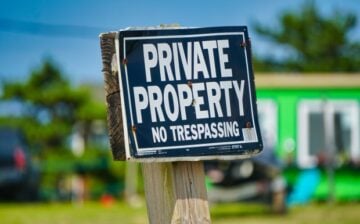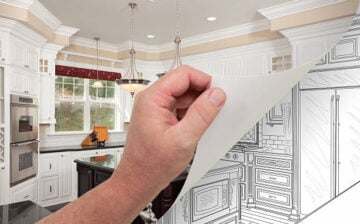Buying a fixer-upper is exciting. The experience allows you to buy a home of your own, save some serious money, and learn some practical skills. However, there are a lot of financial considerations to make. Here’s a helpful financial checklist to help you make sure you’ve got your bases covered.
Look at Your Annual Income
Before purchasing a fixer-upper, you’ll need to set a buying budget. Be honest about your annual income so you can figure out what’s affordable — and what’s not. Optimistic projections can be hopeful, but they need to be backed up with tax information and monthly records of your income and expenses. Being realistic about your annual income will help you avoid the stress of the home-buying process later.
In the meantime, you should tap into online resources, especially if this is your first home purchase. You should also spend some time getting to know the local market, and the best way to do that is to partner with a realtor to assist with the process.
Understand Your Loan Options
There are a variety of good options for home loans. The Federal Housing Administration’s 203(k) loan is a great choice for people who will be able to make the monthly payments consistently. This loan is a good option if the house has a solid structure and the repairs you plan on doing are modest.
Fannie Mae also offers a home renovation loan that considers repairs you’ll make to the house. There are strict limits on the amount you can borrow with this loan.
These are just a couple of options. Before you commit to a loan, contact the institution responsible and carefully consider eligibility and limitations for the loan you choose.
Get Familiar With Average APR Rates
Even though you might borrow the same amount of money from two different lenders, the loan’s actual cost can vary. Knowing the annual percentage rate (APR) can help you choose the most cost-effective loan. The interest rate for many fixer-uppers is higher than for standard home loans, which might make the cost higher than what you originally budgeted for.
Because buying a fixer-upper is less expensive than purchasing a turnkey property, the interest rate likely isn’t going to wreck your dreams. Considering APR is an essential part of figuring out the actual cost and comparing lenders.
Consider Contractor Fees
After finding a home that you’re interested in, you’ll need to think seriously about contractor fees. A recent Forbes article mentioned that some contractor renovation projects are worth the money, while others won’t add much value to your home. Of course, some projects are unavoidable. For example, a leaky roof will require repairs or replacement (typically costs between $5,100 and $10,000). Or a broken-down appliance will likely need immediate repair (You can search appliance service near me to find local deals on sites like Angi). And if the windows are cracked or there’s fog on the glass, they’ll also need repairs. Before hiring a window repair contractor, make sure they’re licensed and insured. Last but not least, always look up reviews of local contractors to ensure you’re not working with someone untrustworthy.
Think About Insurance
There are two kinds of insurance you might need to consider: homeowners insurance and private mortgage insurance. An article in US News discussed homeowners insurance and the options you have regarding conventional insurance, builder’s risk, vacant dwelling, HO-8, or FAIR plans. These insurance options can help prevent your home from turning into a money pit.
If the amount you pay for the down payment is 20 percent or higher, you usually won’t have to get private mortgage insurance. Look for this information early in the loan-seeking process, because it can be a substantial monthly financial consideration you need to anticipate.
Prepare For Property Taxes
Outside of your mortgage payment, an area you can plan to spend the most money is on property taxes. The state usually determines these taxes, and they will be assessed based on how much your home cost. The price of your fixer-upper is probably going to be much lower than other home options, so this is a major way to save money.
Considering these things can help you better understand whether a fixer-upper is the right investment for you and if you should sell it once it’s all fixed up. Of course, your family’s size, the amount of space you want, the neighborhood, the local economy, and other factors will also influence your decision. Regardless of the fixer-upper you choose, a little TLC and determination will help you turn it into the home you’ve always wanted.
You should have learned something new as a result of reading this essay. Additional recommendations are available on this page: Can you Renovate your Home Without a Builder?
Have Experience in the Moving Industry? Want an Additional Income Stream? Work With All Around Moving!
You can boost your earnings by establishing a new revenue stream. Every step of the journey, All Around Moving Services Company, Inc. will be by your side. Click here to learn more.






